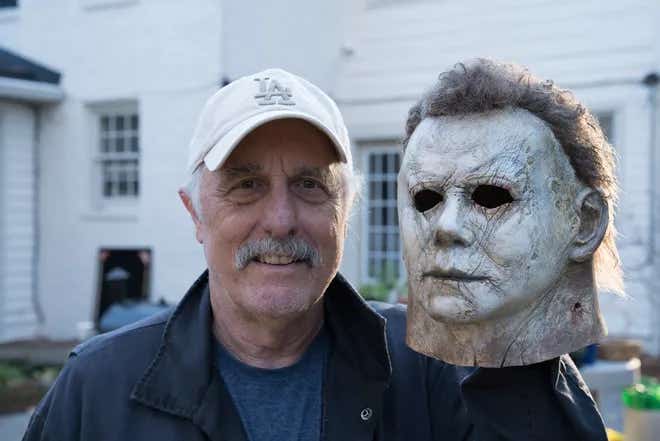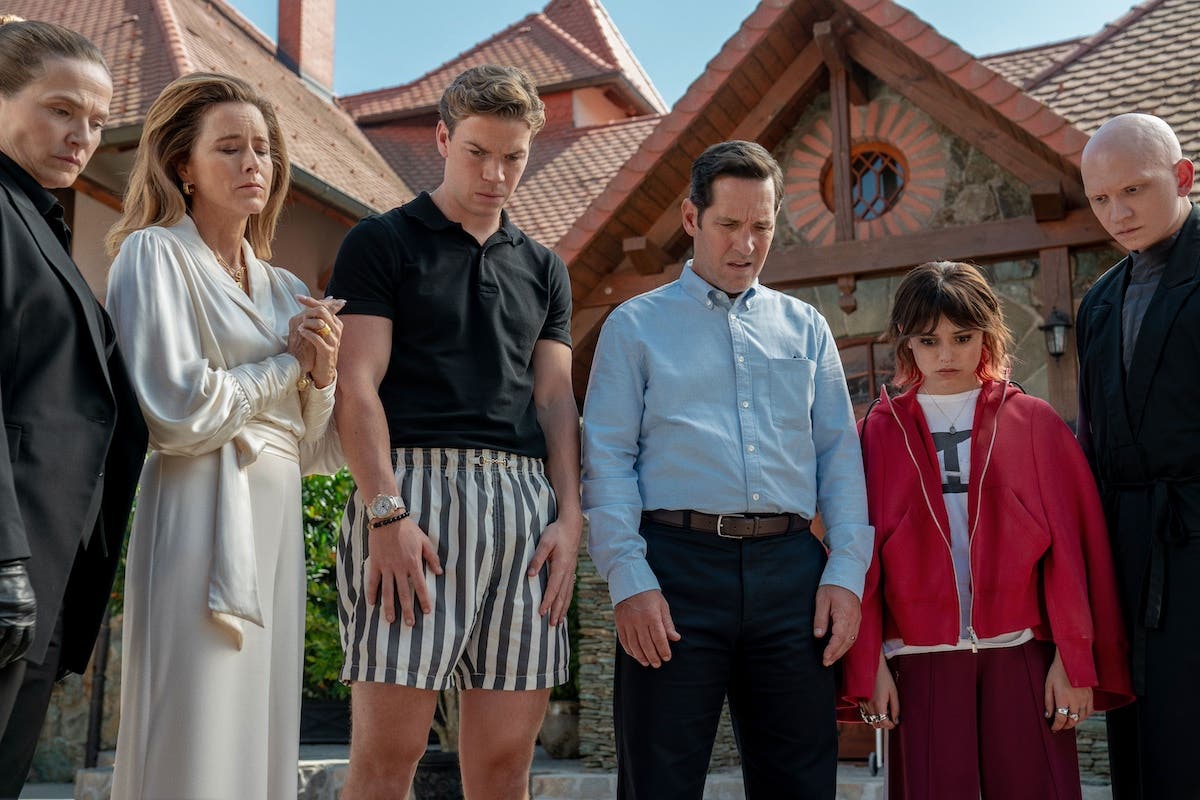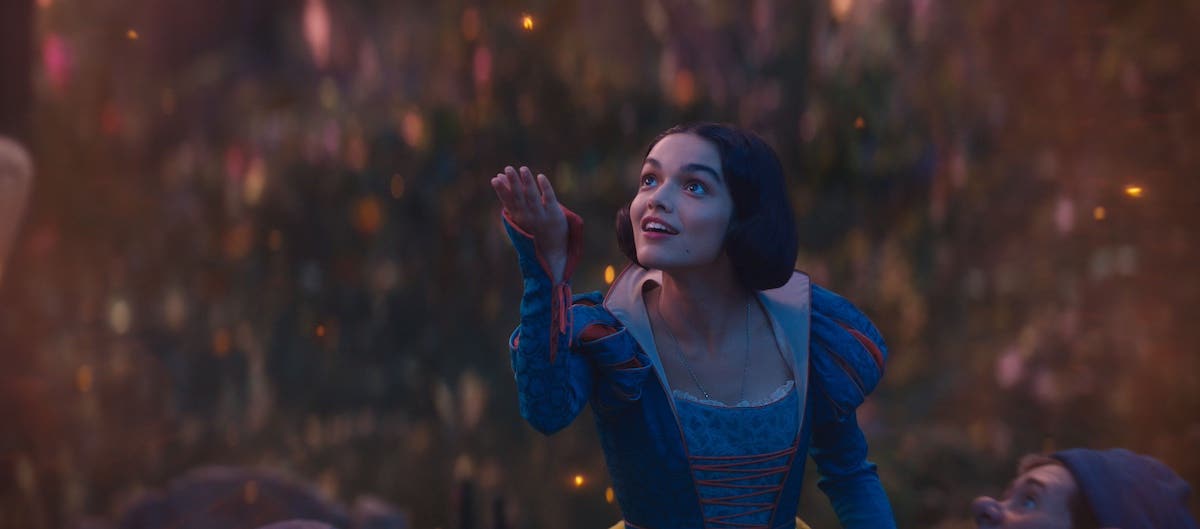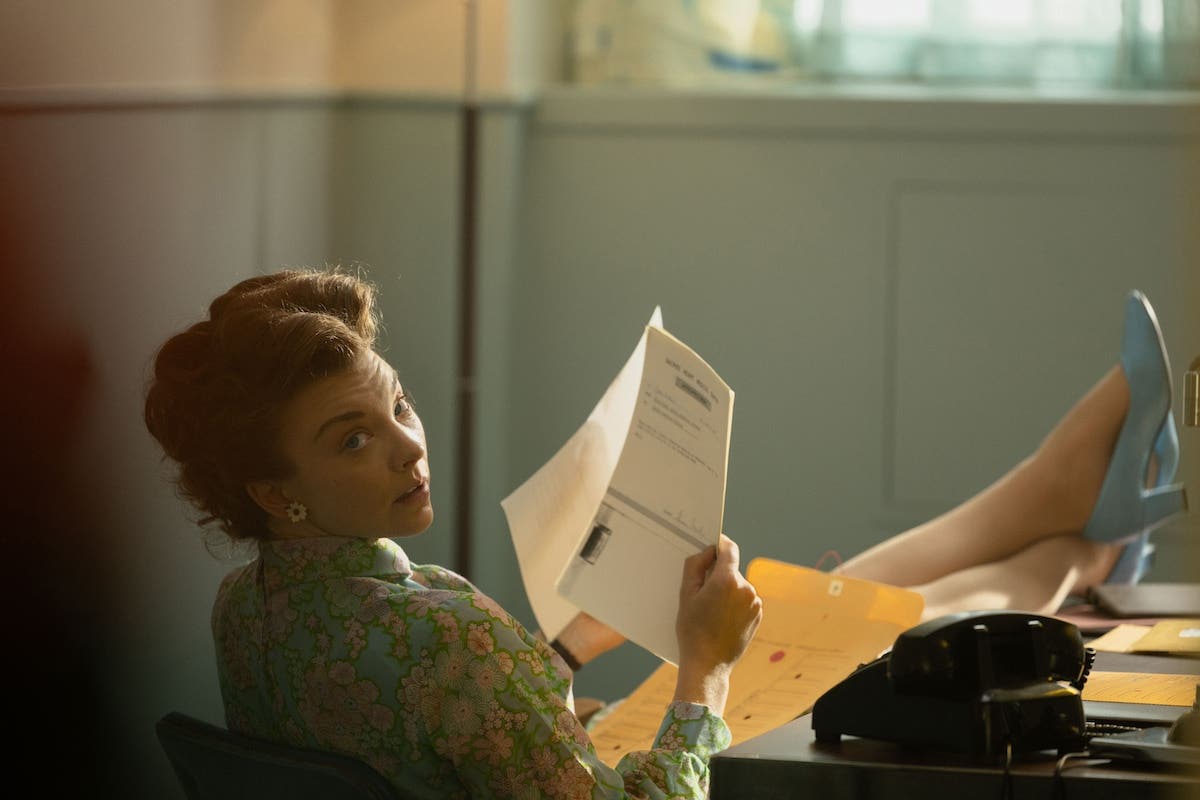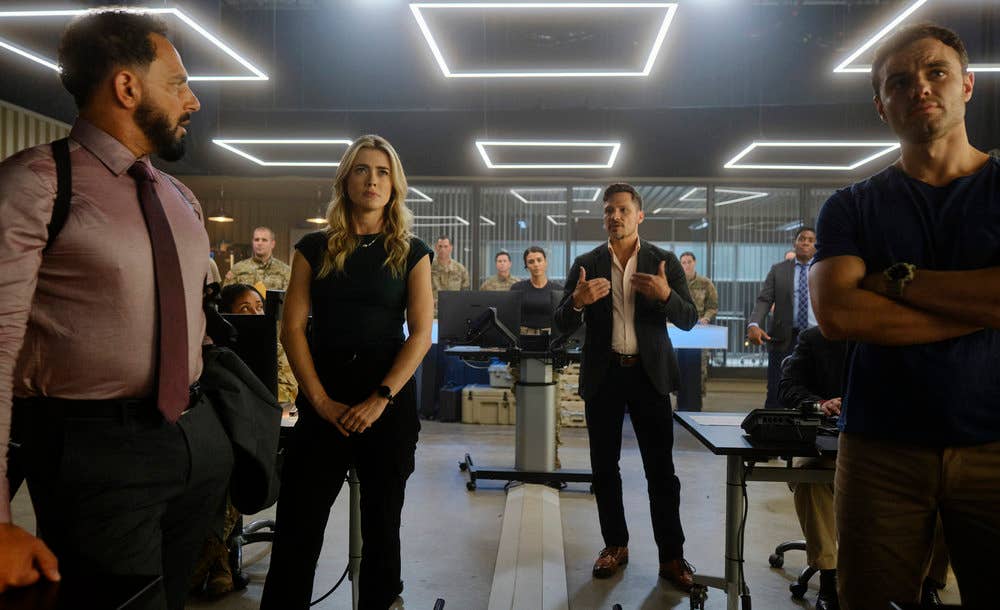Story Universe: Bob Boris on Fiction and Reality in Screenwriting
Bob Boris helps screenwriters find the balance between reality and fiction in stories based on true life and history.
Bob Boris gives more advice in his on demand webinar, A Guide To Writing the True Story Screenplay.
Veteran Robert Boris, writer/director/producer (Electric Glide in Blue, Frank & Jesse; Blood Feud [WGA Award]) says, "It's important for an artist to stand up, be defiant and ask questions of history and of ourselves." Boris' first script was reality based, about a hippie on a cross-country motorcycle trip who became the prime suspect in the killing of a local cop (Electric Glide in Blue).
Many screenwriters have wild imaginations, and the stories they write are, well... Made up. But for most writers, it's a real life experience that sparks the thought, "Hey, that would make a great movie!"
Bob Boris' A Guide To Writing the True Story Screenplay shows us how to turn "reality stories" and factual historical characters into exciting and salable scripts.
Jerry Flattum: What's the difference between a reality-based story and one entirely made-up?
Bob Boris: The quick answer? A non-fiction book. A newspaper article. A TV News Story. That is the primary difference. In short, if it actually happened, the writer must decide if the event is dramatically satisfying. Then the writer must apply the rules of a made-up story. The actual event or life, must answer and resolve all the same questions that a fictional story does. Then, the two genre's blend and become one.
JF: Many of your own stories are reality-based. Was it difficult deciding between fact and fiction? After all, you're not writing/producing a documentary?
BB: While not being as foolish as to compare myself to Shakespeare, the great Bard actually worked the same process on many occasions. Actual events inspired great drama for him, because he realized that the past informs the future. People are always interested in what really happened in the past – and if the drama that evolves from it actually enlightens that event – or says something about the present or the future, it becomes an effective piece of theater. And it lingers in the mind for a very long time.
I have often thought of myself as a journalist with a movie camera. I love learning about a time and place that fascinates me – and sharing that world and those events with a large and universal audience.
JF: Just exactly how factual do you need to be? For example, how close was Gladiator to depicting Ancient Rome, or the accuracy of Gibson's Braveheart character?
BB: Without doing careful research into those specific stories and movies, I cannot honestly comment on the accuracy of their depictions. What I can say is this: Drama is not a documentary. All the details do not have to be spot-on accurate. What matters, is creating an accurate "sense" of the time, place and the people.
Screenwriters are NOT historians. They are entertainers. They are Storytellers. As long as they don't allow Russell Crowe or Mel Gibson to get in an airplane and bomb their tyrants with Hellfire Missiles, they are on safe territory.
Besides, I believe all serious and professional writers have an internal clock or mechanism, they cannot knowingly and willingly combine broad fiction in a reality story.
UNLESS... That's the point! Quentin Tarantino said Hitler, Goering, and a few others died in a movie theater in Paris! Now, that was bullshit, and most people know it. But Inglorious Bastards was a wish fulfillment movie, not a docudrama. And he made that fact abundantly clear throughout the film.
JF:Do critics – and more poignantly, historians – demand historical accuracy knowing a certain amount of poetic license is needed in shaping a largely fictional story? Meanwhile, movies like Pocahontas and JFK received scathing criticism from historically accurate pundits.
BB: That's a damn good question. Critics know that events and characters often have to be compressed in a movie drama. We only have two hours to tell a story... That isn't enough time to include every event and every sub-plot in a historical drama.
But some critics will slam movies for those indiscretions. I think, because it makes them feel superior to the filmmaker. Especially, if the filmmaker is arrogant and insists his or her film is the "real truth!" Then, some critics stop judging the film as a movie, but rather as an historical document.
Obviously, Oliver Stone bugged some of them with JFK. Those critics refused to embrace Oliver's theory of a large conspiracy in the killing of the President, so they felt obliged to discredit the film, and him. A terrible mistake, I believe. As a great filmmaker, Oliver had the right and the duty to interpret the events as he saw it. I for one, applauded his artistry and courage.
On the other hand, a more dangerous factor these days, is the blogosphere. Everyone on the Net these days, is a critic. They love to expose or take down movies. It gives them visibility, and a bit of power. It is the nature of our times. If people dissect or debunk a movie online, it can go viral before the movie even hits the screens. In the current environment, thanks to the Internet, a movie can be a hit before it opens or it can be DOA, Dead On Arrival.
JF: But then again, on the basis that "reality is perception," what makes historians the greater authority when it comes to history and discerning what is fact and what is a guessing game? According to a NY Times article, "History According to Hollywood," screenwriter William Goldman (“All The President’s Men”) once said that as far as movies are concerned, it is not important what is true; it is important what audiences accept as true. Do you agree?
BB: Yes! Why would I ever argue with William Goldman?? As I said before, a movie is a movie... It is not a front page article in the New York Times. The screenwriter should interpret historical events, not unlike Shakespeare did! The writer needs to be as close to the truth as good drama permits. The writer cannot break the fifth wall of reality. If Russell Crowe was wearing his Rolex in the arena, it throws the whole movie into the wood chipper. Professional writers know that. Telling the true story makes its own demands. Don't be stupid. Don't play fast and lose with the facts. Maintain the truth, or as close to it as possible...and the audience will accept the film as a true story. The moment you lose them – give them something clearly false? They are gone for good!
JF: Stephen Spielberg is known for bringing in historical advisors, such as Schindler's List and Lincoln. But are audiences really looking for historical accuracy? Do they even care if the tale is based on true life or just made up?
As I said, in my previous answer... A writer and a director has a job to do, that is, IF they truly want the audience to believe that the story they are telling, really happened. There is a special pain that comes with every frame of a reality film. In a true story that the audience believes is true, something unique happens. With every frame the audience says, silently... my god, did that really happen? When they silently ask themselves that question, the answer better be yes! Or the audience is gone, forever!
If Liam Neeson is reading a newspaper in 1943, with a N.Y. METS BOX SCORE on the page, its all over! The better the writer, the better the director, the greater the attention to detail. The right shoes, a frayed collar, a pocket watch from the period... All of those details help an audience to believe and accept. More importantly, it helps the actor to believe and accept.
Can you imagine what it felt like, if Daniel Day Lewis actually held a pen that Lincoln used or wore a shawl that Lincoln wore? How much more life and reality would that scene have for him?? And if he feels it, we feel it twice as much. Truth resonates.
JF: In the same NY Times article, "Viewers should neither accept such claims or dismiss them out of hand, but regard them as an invitation for further exploration." Isn't this the best and most positive way to interpret real life/history-based movies?
BB: Absolutely! I love it if my work inspires some teenager or audience member to do some more reading and digging into the story. There is always more truth to come out, because no movie can ever tell it all. I know the true story of T.E. LAWRENCE had a lot more facts then those seen in that great and epoch drama. Even if the movie was three hours long!
On the flip side, the "fictional reality" we see in movies brings reality much more closer to home than the textbooks so many of us grow up with. This is especially true when it comes to American history. For instance, in Patriot (Mel Gibson), we get a far more bloodier picture than the red, white and blue heroic depiction of grade school. And, is this not a great argument for the depiction of realistic violence? Sure, some movies are violence for entertainment's sake. But from Saving Private Ryan to Braveheart, do not audiences have a more realistic idea of what war (and death) is really like?
Fidelity to violence is crucial. That includes brutality in action and combat, but also the human violence people do to each other, without raising a finger! Saving Private Ryan, Braveheart, The Patriot, the violence and brutality helps us to understand the environment surrounding these main characters. This ugliness informed and defined their world. To understand these characters, we need to see what they saw. Feel what they felt. Fear what they feared.
In our current environment, if we dilute the true violence of a story or event, it will discredit the entire movie. We live in an unforgiving time. There are people out there who look for the moment when a movie screws up. They crave the mistakes, untruths, or simplifications. It makes their day, if they can tweet the errors in a movie. I can't count how many times I go online, and find some main page article that reads: "10 OF THE BIGGEST MISTAKES IN YOUR FAVORITE MOVIES!!!"
So, why should Spielberg, any director or any writer "Make Their Day," and give them more mistakes?
Hey, what about comedies, like Mel Brook's, History of the World Part 1?
It's a barrel of Brook's fun, madness, and scatological references.... What more can anyone ask for? I loved it!!!
Or how about romance? Many movies allegedly based on history, infuse the stories with love and romance, with Titanic as the most obvious. What's wrong with that?
Well, with the thousand or so people who died on that ship, who's to say there wasn't a love story like that? Look, as I have stated, movies are movies, not historical documents. If one wants a collection of pure facts, make a documentary. Movies are entertainment. And love stories are a staple of cinema entertainment.
Movies are also a business and everyone knows it. I believe the modern audience accepts a good love story within a historical event because they know they are watching a movie. As long as the love story doesn't insult them, appear stupid, or superfluous. If the love story is integral to the tale, audiences accept it – even embrace it.
In Titanic, the love story was essential. In fact, it was almost equal weight to the sinking of the great ship. It was the mystery that opened the movie... It was the motivation for Billy Zane to go nuts and try to kill someone on a sinking ship, and it was the final death and loss of love that ended the movie. That's the brilliant use of a love story amidst a true and incredible event.
That is also... damn good writing!
Get Bob Boris' Webinar, A Guide to Writing the True Story Screenplay
